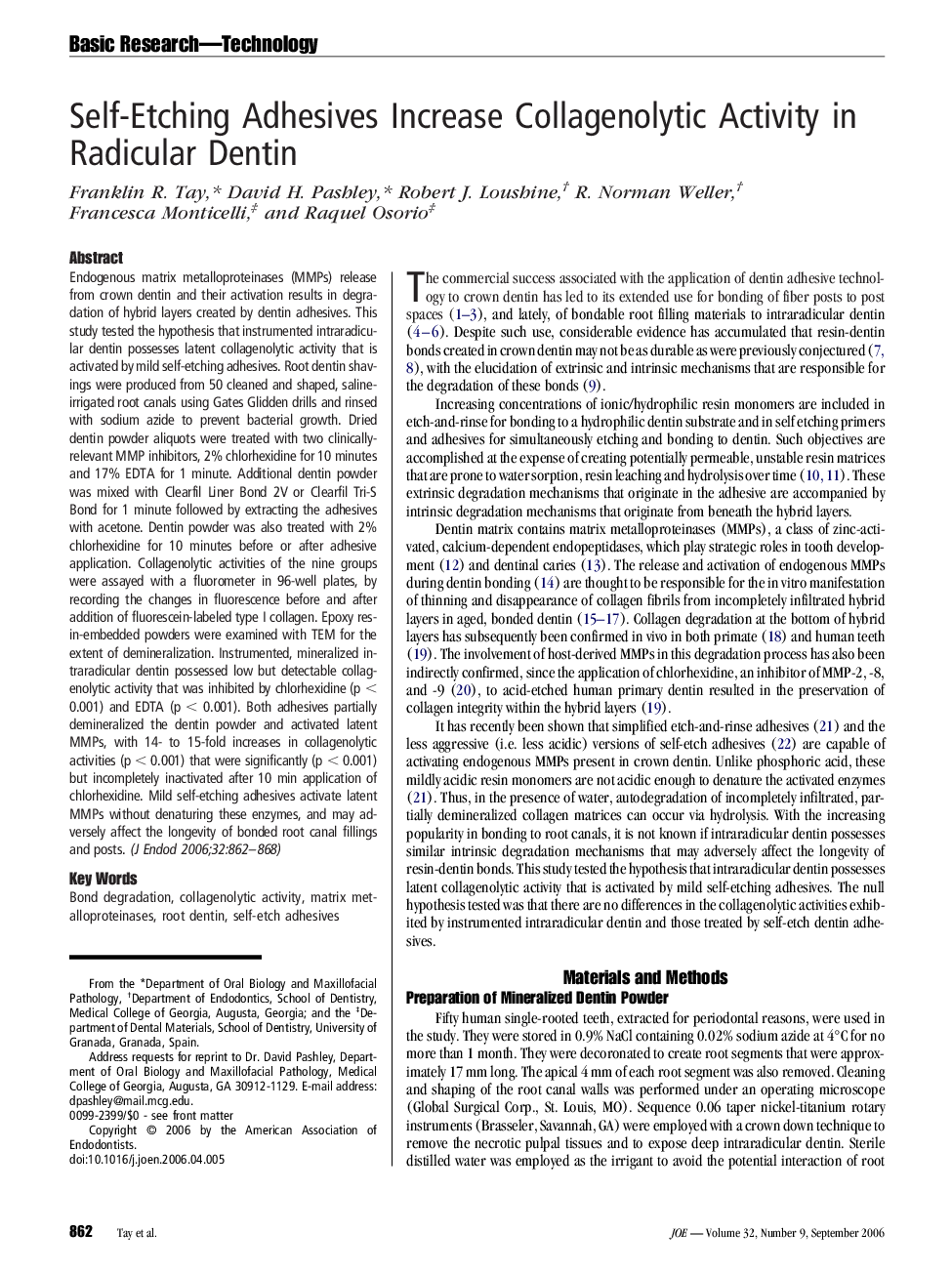| Article ID | Journal | Published Year | Pages | File Type |
|---|---|---|---|---|
| 3150197 | Journal of Endodontics | 2006 | 7 Pages |
Endogenous matrix metalloproteinases (MMPs) release from crown dentin and their activation results in degradation of hybrid layers created by dentin adhesives. This study tested the hypothesis that instrumented intraradicular dentin possesses latent collagenolytic activity that is activated by mild self-etching adhesives. Root dentin shavings were produced from 50 cleaned and shaped, saline-irrigated root canals using Gates Glidden drills and rinsed with sodium azide to prevent bacterial growth. Dried dentin powder aliquots were treated with two clinically-relevant MMP inhibitors, 2% chlorhexidine for 10 minutes and 17% EDTA for 1 minute. Additional dentin powder was mixed with Clearfil Liner Bond 2V or Clearfil Tri-S Bond for 1 minute followed by extracting the adhesives with acetone. Dentin powder was also treated with 2% chlorhexidine for 10 minutes before or after adhesive application. Collagenolytic activities of the nine groups were assayed with a fluorometer in 96-well plates, by recording the changes in fluorescence before and after addition of fluorescein-labeled type I collagen. Epoxy resin-embedded powders were examined with TEM for the extent of demineralization. Instrumented, mineralized intraradicular dentin possessed low but detectable collagenolytic activity that was inhibited by chlorhexidine (p < 0.001) and EDTA (p < 0.001). Both adhesives partially demineralized the dentin powder and activated latent MMPs, with 14- to 15-fold increases in collagenolytic activities (p < 0.001) that were significantly (p < 0.001) but incompletely inactivated after 10 min application of chlorhexidine. Mild self-etching adhesives activate latent MMPs without denaturing these enzymes, and may adversely affect the longevity of bonded root canal fillings and posts.
